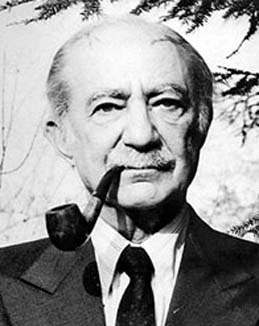
" ปัญหาในทางปฎิบัติ วิทยาศาสตร์ ปรัชญา และศิลปะทำให้มนุษย์ศึกษา วินิจฉัย คณิตศาสตร์ แต่ยังมีแรงจูงใจที่สำคัญอีกอย่างไม่แพ้สิ่งข้างต้นที่ทำให้มนุษย์สนใจคณิตศาสตร์ นั่นก็คือ การค้นหาความงามของคณิตศาสตร์ คณิตศาสตร์เป็นศิลปะ ที่สร้างความสำราญใจเฉกเช่นเดียวกับศิลปะอื่นๆ"
-Morris Kline
Morris Kline (May 1, 1908 June 10, 1992) was a Professor of Mathematics, a writer on the history, philosophy, and teaching of mathematics, and also a popularizer of mathematical subjects.
Kline grew up in Brooklyn and in Jamaica, Queens. After graduating from Boys High School in Brooklyn, he studied mathematics at New York University, earning a bachelor's degree in 1930, a master's degree in 1932, and a doctorate in 1936. He continued at NYU as an instructor until 1942.
During World War II, Kline was posted to the Signal Corps (United States Army) stationed at Belmar, New Jersey. Designated a physicist, he worked in the engineering lab where RADAR was developed. After the war he continued investigating electromagnetism, and from 1946 to 1966 was director of the division for electromagnetic research at the Courant Institute of Mathematical Sciences.
Kline resumed his mathematical teaching at NYU, becoming a full professor in 1952. He taught at New York University until 1975, and wrote many papers and more than a dozen books on various aspects of mathematics and particularly mathematics teaching. He repeatedly stressed the need to teach the applications and usefulness of mathematics rather than expecting students to enjoy it for its own sake. Similarly, he urged that mathematical research concentrate on solving problems posed in other fields rather than building structures of interest only to other mathematicians. One can get a sense of Kline's views on teaching from the following:
I would urge every teacher to become an actor. His classroom technique must be enlivened by every device used in theatre. He can be and should be dramatic where appropriate. He must not only have facts but fire. He can utilize even eccentricities of behavior to stir up human interest. He should not be afraid of humor and should use it freely. Even an irrelevant joke or story perks up the class enormously.
-Introduction to Mathematics (with Irvin W. Kay), Houghton Mifflin, 1937
-The Theory of Electromagnetic Waves (ed), Inter-science Publishers, 1951
-Mathematics in Western Culture, Oxford University Press,1953
-Mathematics and the Physical World, T. Y. Crowell Co., 1959
-Mathematics, A Cultural Approach, Addison-Wesley, 1962
-Electromagnetic Theory and Geometrical Optics (with Irvin W. Kay), John Wiley and Sons, 1965
-Calculus, An intuitive and Physical Approach, John Wiley and Sons, 1967, 1977, Dover Publications 1998 reprint ISBN 0-486-40453-6
-Mathematics for Liberal Arts, Addison-Wesley, 1967, (republished as Mathematics for the Nonmathematician, Dover Publications, Inc., 1985) (ISBN 0-486-24823-2)
-Mathematics in the Modern World (ed), W. H. Freeman and Co., 1968
-Mathematical Thought From Ancient to Modern Times, Oxford University Press, 1972
-Why Johnny Can't Add: The Failure of the New Mathematics, St. Martin's Press, 1973
-Why the professor can't teach: Mathematics and the dilemma of university education, St. Martin's Press, 1977 (ISBN 0-312-87867-2)
-Mathematics: The Loss of Certainty, Oxford University Press, 1980 (ISBN 0-19-502754-X); OUP Galaxy Books pb. reprint (ISBN 0-19-503085-0)
-Mathematics: An Introduction to Its Spirit and Use; readings from Scientific American
-Mathematics in the Modern World; readings from Scientific American
-The Language of Shapes (with Abraham Wolf Crown)
-Mathematics and the Search for Knowledge
//en.wikipedia.org/wiki/Morris_Kline
Create Date :15 สิงหาคม 2556
Last Update :15 สิงหาคม 2556 9:40:25 น.
Counter : 1613 Pageviews.
Comments :7
- Comment

ส่งไฟล์ให้ละครับ
โดย: Godel IP: 110.171.78.243 15 สิงหาคม 2556 21:46:04 น.
เคยตั้งคำถามในหว้ากอ อยากลองถามความเห็นของพี่ด้วยครับ
---------------
ข้อถกเถียงเก่าคือมนุษย์คิดค้นหรือไปค้นพบความจริงทางคณิตศาสตร์(และฟิสิกส์)
คำตอบชัดเจนอยู่แล้ว เหมือนคนเขลาถามพระเจ้าว่า ต้นมะเขือหลังบ้านจะมีอยู่หรือไม่ถ้าไม่มีคนไปเห็น
พระเจ้าจึงตอบว่า เจ้านี่ชั่งเขลานัก แม้เจ้าจะไม่เห็นต้นมะเขือ แต่มันก็ยังมีอยู่เพราะข้าเป็นคนดูอยู่ ข้าดูอยู่ทุกสรรพสิ่ง
นั้นถ้าความจริงทางคณิตศาสตร์และฟิสิกส์มีอยู่แล้ว สิ่งที่มีทั้งหมดก็คือความจริงทางคณิตศาสตร์และฟิสิกส์ทั้งหมด
คิดว่ามนุษย์สามารถเข้าถึงความจริงทางคณิตศาสตร์และฟิสิกส์ทั้งหมดได้หรือไม่ ?
สิ่งนี้แอดิชเรียกว่า คัมภีร์ทรานฟินิตี้ รวบรวมพิสูจน์สมมติฐานทั้งหมด บทพิสูจน์ที่สวยงามและสมบูรณ์ที่สุด
โดย: Mr.Feynman
นึกไปถึงหลักธรรมทางพระพุทธศาสนา ที่ว่าธรรมเป็นอกาลิโก แม้ปราศจากมนุษย์ แม้ปราศจากภพ ภูมิ ใดๆ แม้จักรวาลจะเสื่อมสลายวิบัติไป ธรรมนั้นก็คงอยู่ คือเค้าคงต้องการบอกว่าความจริงยังไงก็เป็นความจริงวันยังค่ำ แม้จะไม่มีใครมารู้มาเห็น
ส่วนที่บอกว่า "นั้นถ้าความจริงทางคณิตศาสตร์และฟิสิกส์มีอยู่แล้ว สิ่งที่มีทั้งหมดก็คือความจริงทางคณิตศาสตร์และฟิสิกส์ทั้งหมด" อันนี้ไม่ค่อยเข้าใจ/ไม่ค่อยแน่ใจนะ ว่า "สิ่งที่มีทั้งหมด" นี่คืออะไร ขอไม่ตอบละกันครับ อิอิ
"คิดว่ามนุษย์สามารถเข้าถึงความจริงทางคณิตศาสตร์และฟิสิกส์ทั้งหมดได้หรือไม่?"---คิดว่าถ้ามองเป็นคนๆไป เข้าถึงทั้งหมดไม่ได้ครับ เพราะการรับรู้ของคนๆหนึ่งเปรียบเสมือน finite set ระยะเวลาในชาตินึงที่มีชีวิต ก็เป็น finite period of time ดังนั้นคงไม่สามารถ "contain" อะไรที่เป็น infinite ได้ทั้งหมด แต่เข้าถึงได้บ้างส่วน ตามกำลังความสามารถหรืออะไรก็ตามแต่ และสิ่งที่เข้าถึง (ความรู้ที่ว่า) ก็เป็นปริมาณที่ finite แน่นอน
โดย: Godel IP: 110.171.78.243 16 สิงหาคม 2556 17:46:00 น.
โดย: Mr.Feynman
Cheap Oakley Sunglasses //www.mini-systemsinc.com/links.asp
โดย: Cheap Oakley Sunglasses IP: 94.23.252.21 2 สิงหาคม 2557 18:40:00 น.
โดย: BrfgFunc IP: 188.40.113.83 26 มีนาคม 2564 17:01:12 น.
โดย: Grvteeva IP: 188.40.113.83 28 มีนาคม 2564 7:37:11 น.